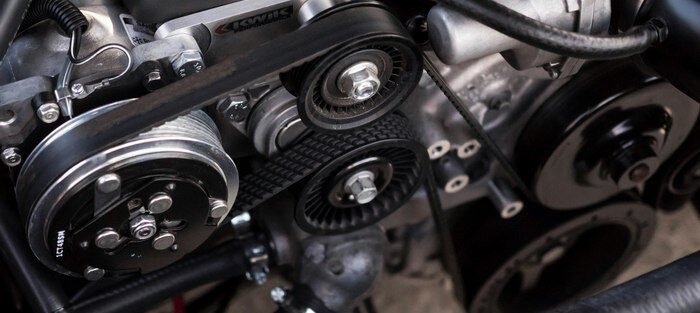Diesel or gasoline, which is better?
Everyone who plans to buy a car asks the question: “Which engine is better: diesel or gasoline?” It is difficult to find an unambiguous answer, since the choice of a specific power unit depends on many factors: the type of car body, its purpose, the characteristics of the area where the car will be operated, etc.
Motors of any type have their advantages and disadvantages, so take your choice seriously, because the fuel consumption of the vehicle, its acceleration time to 100 km/h, maximum speed and other important characteristics depend on the engine.
In a gasoline engine, the air-fuel mixture is formed in the intake manifold, that is, outside the cylinder. At the end of the compression stroke, gasoline vapor and air are mixed. This homogeneous mixture is evenly distributed throughout the volume. The result of compression is an increase in the temperature of the mixture to 500˚C – this figure is lower than the ignition temperature of gasoline. The spark plugs provide a spark and the mixture ignites.
In a diesel engine cylinder, only air is compressed at a pressure of 30–50 bar. As a result of compression, the air temperature rises to 900˚C. At the same time, diesel fuel is sprayed into the combustion chamber before the top dead center of the piston. Small drops of liquid evaporate, forming a fuel-air mixture, which is called heterogeneous – it spontaneously ignites and burns.
The combustion of the working mixture in a diesel engine is more efficient. This is possible due to the high compression ratio: 20 units for diesel versus 10 units for gasoline. The efficiency of a diesel engine is 40% higher, and fuel consumption is 20% less. The gasoline unit has more power.
Noise
Due to the high pressure during fuel combustion, diesel engines create more noise and vibration, but the situation is saved by high-quality sound insulation of the car.
Exhausts
Diesel versions of internal combustion engines are considered more environmentally friendly. Modern units fully comply with Euro-4 standards and are equipped with a particulate filter, which minimizes the impact on the environment.
Safety
The difference between diesel and gasoline fuel is this: diesel evaporates more slowly, which reduces the likelihood of fire. In addition, diesel units do not use an ignition system.
Exploitation
Theoretically, a diesel engine is more durable due to a rigid and durable cylinder block, crankshaft, elements of the cylinder-piston group, and cylinder head. However, this characteristic directly depends on the quality of diesel fuel. From this point of view, the gasoline unit is less demanding and more resistant to low-quality fuel.
The diesel engine, unlike its gasoline counterpart, does not tolerate low temperatures. Already at -15˚С, summer diesel fuel thickens and stops passing through the fuel filter, as a result of which the car refuses to start. However, the problem has a simple solution – the use of special types of fuel or the installation of modern heating systems. In addition, diesel engines take a long time to warm up, so the interior will become warm only after 10–15 minutes of intense driving. If you live in an area where severe frosts are not uncommon, give preference to a gasoline unit.
In addition, diesel is not afraid of water, since electricity in such motors is used only for starting. That is why SUVs and crossovers are equipped with diesel units.
Service
Owners of cars with diesel engines have to change filters and oils more often and check compression in the cylinders. Such units have a complex design, so car service specialists will not be able to fix every breakdown. Diesel engine repairs tend to be more expensive.
Diesel requires large capital investments, but only in the short term. If you are buying a car for a long time (from 5 years) and plan to drive at least 20 thousand kilometers a year, then thanks to low fuel consumption, diesel will save you money.
Price
Diesel is more expensive than gasoline, but keep in mind that maintaining such an engine will require large investments.
Gasoline engines
Pros:
☑ Low noise level
☑ High power
☑ Ability to operate at high speeds without consequences for the engine
☑ Resistance to low-quality fuel
☑ Availability of spare parts
☑ Low cost of maintenance
☑ Ability to withstand low temperatures well
Cons:
☒ Higher fuel consumption
☒ Less durability
☒ Ability to achieve maximum power in a small rpm range
Diesel engine
Pros:
☑ Economical
☑ Low fuel cost
☑ Lack of ignition system
☑ High torque
☑ Durability
☑ Eco-friendly
☑ Possibility of contact with water
Cons:
☒ Large mass
☒ Less power
☒ Sensitivity to low-quality fuel
☒ Low frost resistance
☒ High cost of maintenance
☒ Impossibility of repair in most cases
What’s better? Which engine is more reliable? Each car enthusiast will answer these questions independently based on his priorities – power or efficiency, low or high frost resistance, etc. An ideal engine is a unit that combines the advantages of diesel and gasoline engines.


